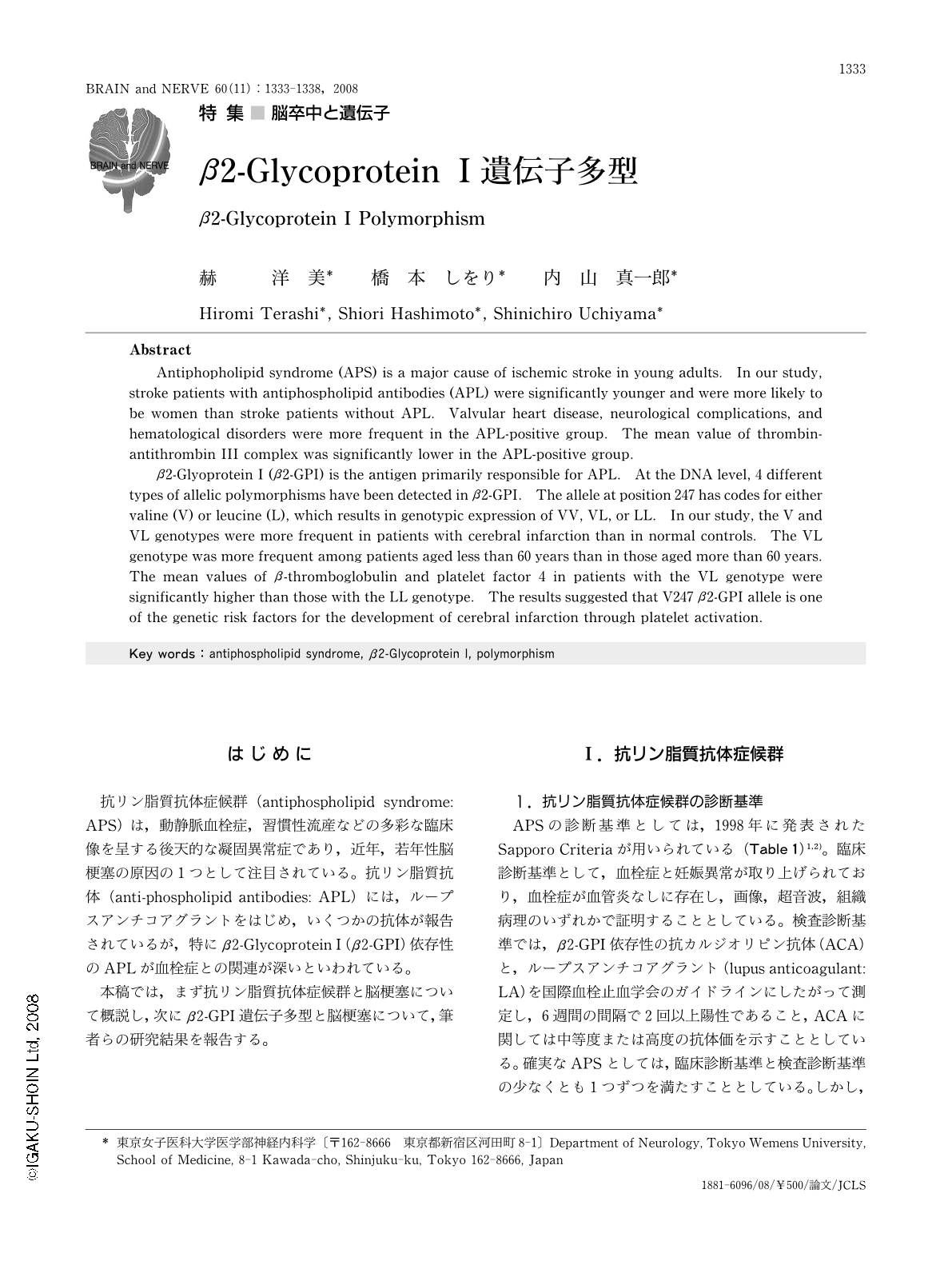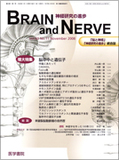Japanese
English
- 有料閲覧
- Abstract 文献概要
- 1ページ目 Look Inside
- 参考文献 Reference
はじめに
抗リン脂質抗体症候群(antiphospholipid syndrome: APS)は,動静脈血栓症,習慣性流産などの多彩な臨床像を呈する後天的な凝固異常症であり,近年,若年性脳梗塞の原因の1つとして注目されている。抗リン脂質抗体(anti-phospholipid antibodies: APL)には,ループスアンチコアグラントをはじめ,いくつかの抗体が報告されているが,特にβ2-Glycoprotein I(β2-GPI)依存性のAPLが血栓症との関連が深いといわれている。
本稿では,まず抗リン脂質抗体症候群と脳梗塞について概説し,次にβ2-GPI遺伝子多型と脳梗塞について,筆者らの研究結果を報告する。
Abstract
Antiphopholipid syndrome (APS) is a major cause of ischemic stroke in young adults. In our study,stroke patients with antiphospholipid antibodies (APL) were significantly younger and were more likely to be women than stroke patients without APL. Valvular heart disease,neurological complications,and hematological disorders were more frequent in the APL-positive group. The mean value of thrombin- antithrombin III complex was significantly lower in the APL-positive group.
β2-Glyoprotein I (β2-GPI) is the antigen primarily responsible for APL. At the DNA level,4 different types of allelic polymorphisms have been detected in β2-GPI. The allele at position 247 has codes for either valine (V) or leucine (L),which results in genotypic expression of VV,VL,or LL. In our study,the V and VL genotypes were more frequent in patients with cerebral infarction than in normal controls. The VL genotype was more frequent among patients aged less than 60 years than in those aged more than 60 years. The mean values of β-thromboglobulin and platelet factor 4 in patients with the VL genotype were significantly higher than those with the LL genotype. The results suggested that V247 β2-GPI allele is one of the genetic risk factors for the development of cerebral infarction through platelet activation.

Copyright © 2008, Igaku-Shoin Ltd. All rights reserved.


